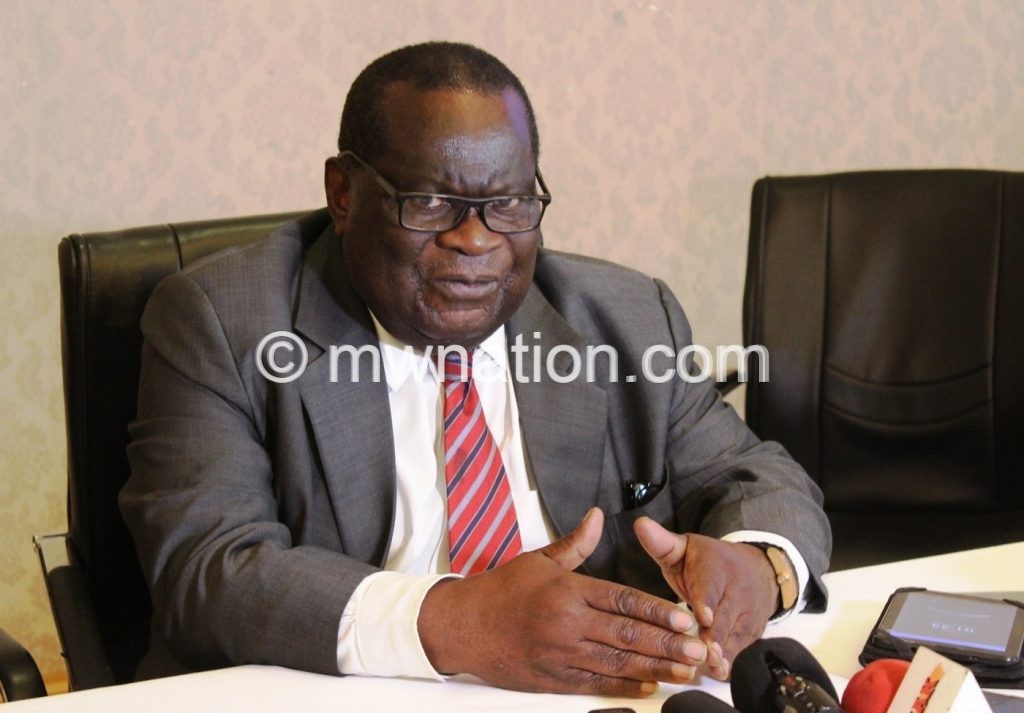Allowances to nowhere
There are no documents proving anyone travelled anywhere and needed fuel or per diems.
But between 2014 and 2018, government spent K4.4 billion on fuel and allowances for trips no one can prove ever took place or if they did, their costs and durations were greatly exaggerated, according to our analysis of the Auditor General’s audits covering the four years.

Of the K4.4 billion, K2.4 billion was uncounted for fuel expenditure while K2 billion vanished in a bottomless pit of dubious allowance claims officials have failed to justify.
Among ways of abusing allowances are claiming allowances for more days than the period it took to do work; paying whole subsistence allowances when just lunch allowance would suffice and pocketing allowances for trips not taken.
For example, at the Administrator General’s, there was so much laxity in monitoring how the department paid K2.5 million to three officers as subsistence allowances for seven nights for delivering mail from Lilongwe to Kasungu.
Kasungu is 125km from Lilongwe, which is a two-hour drive, but these officers—at least on paper—must have spent six nights to get into and out of Kasungu, blowing money allocated to a department that administers deceased estates and other trusts.
Other departments have done worse, according to findings of the audits we have reviewed.
A payroll audit covering the 2015/16 period declared as dubious about K833 million in allowances at the ministries of Health, Agriculture and Education.
A general audit of the same period also found that an additional K191.7 million, including payment of subsistence allowances, was dished out as full subsistence allowances when it should just have been lunch allowance.
Some employees, in some cases, received top up allowances that were 15 times more than they should have been, leading to a loss of K35 million.
In the new audit report covering 2017/18, K241.5 million in allowances could not be accounted for, including K11 million in subsistence allowanced paid to undeserving officers in the Ministry of Health.
At the Ministry of Foreign Affairs, government paid external travel allowances on a fully funded trip amounting to K7.6 million.
On fuel abuse, in the recent audit of 2017/18 alone it made up 9.6 percent of the major findings. The Auditor General put the fuel loss at K2.4 billion.
In 2014/15, fuel amounting to K517 million could either not be accounted for or was not registered in the fuel ledger.
On this irregularity, the biggest culprit was the Malawi Police Service, which could not account for fuel worth K263.8 million between July 2014 and June 2015.
In 2015/16, auditors could not find how fuel worth K518.8 million was used because there were no records and auditors were at pains to ascertain whether indeed fuel was purchased.
An audit of several MDAs, including Malawi Defence Force, pointed to the men in uniform as having the highest abuse of fuel between 2014 and 2017.
In 2017/18, an audit of selected MDAs showed that K240 million in fuel could not be accounted for or signed for contrary to Treasury Instruction 11.6 which states that items such as fuel should be recorded before being issued out.
In the financial year ending June 30, 2018, apart from fuel not being accounted for, other findings included K444 million fraudulent payments to personal accounts, K441 million in stores not registered in the ledger, K301 million in payments made without supporting documents among others.
Minister of Finance, Economic Planning and Development Goodall Gondwe admitted in an interview yesterday that “laxity” in enforcing systems and failure to unleash the Public Finance Management Act on offenders is costing the taxpayer billions of kwachas.
“On allowances, quite frankly there is laxity there. Previously it was a requirement to account for how the allowances have been used for, especially for external travels, but that has not been the case recently,” he said.
Gondwe said the ministry would be issuing a Treasury Instruction in which public servants would be asked to prove how allowances were spent, in the case of external travel, submission of copies of passports or boarding passes.
But the minister defended some MDAs, saying some of the fuel not accounted for could be entitlements of some officers who are not required to report how the fuel is used.
The abuse of allowances has in the past soiled Lilongwe’s relations with development partners, including the United States Government.
A payroll audit in 2015/16 and an investigative audit of Centre for Disease Control/Malawi Government activities in 2016/17 showed that civil servants were able to partake in allowances using creative means that went undetected until the project funders, United States Government, smelled a rat.
The lack of action on the abuses have also infuriated local stakeholders.
For example, the Public Accounts Committee of Parliament has in the past expressed frustration at controlling officers’ failure to sanction staff who are found to have contravened the Public Finance Management Act regulations.
And yesterday, Economics Association of Malawi (Ecama) president Chiku Kalilombe said as much.
“When such issues are ignored or not acted upon, they tend to replicate themselves into larger problems. If Treasury can allow overspending at MDA level, this goes down to the officers who might think they can get away with anything,” he said.
Kalilombe said the fact that failing to account for fuel or sharing allowances willy-nilly recurs with every public audit, there seems to be a general attitude that public servants can get away with it.
“Some argue that they turn to allowances because their salaries are too low, but you cannot solve such a problem with theft. A lasting solution should be found to address issues of remuneration,” he said.





